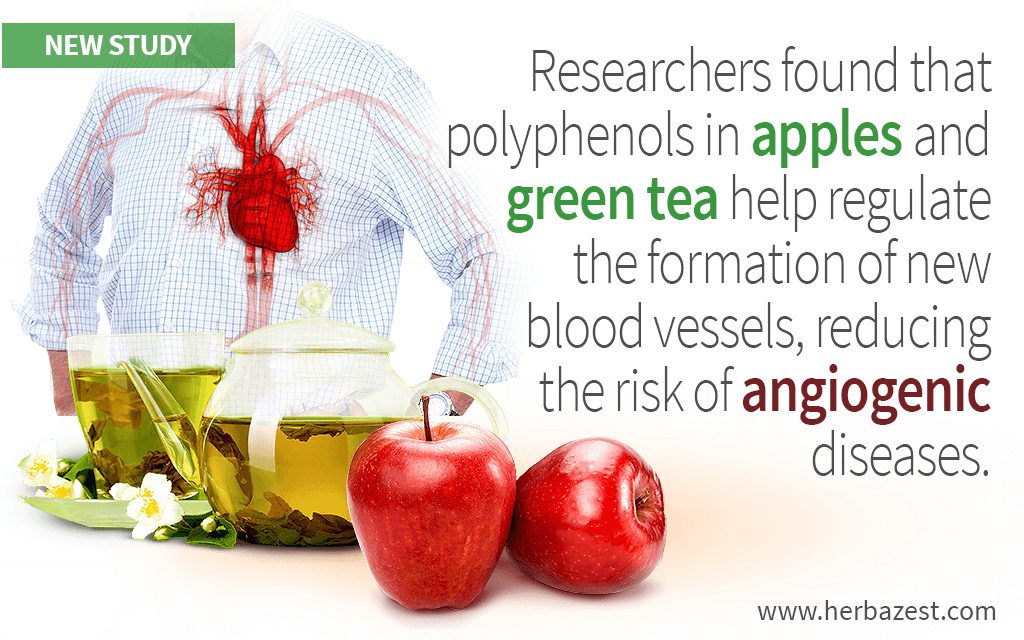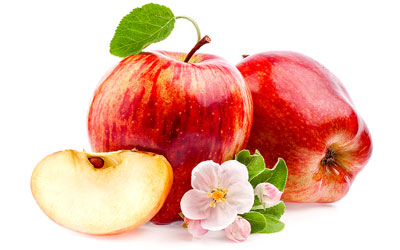It's been well understood that fruits and vegetables are amazing for overall health. In fact, the more fruits and vegetables eaten, the lower the rates of mortality and risk of chronic diseases like cancer and cardiovascular disease.
This recent study announces exciting results about certain compounds found in some fruits and vegetables called polyphenols, which may inhibit a bodily process called angiogenesis. Angiogenesis is the formation of new blood vessels from pre-existing ones, and which plays a big part in the progression of cancer, atherosclerotic plaques, and the plaque rupture that can lead to heart attacks and stroke. Vascular endothelial growth factor (VEGF), a signal protein, is the most prominent factor involved in precipitating angiogenesis.
The Study
The team at the Institute of Food Research took cells found in human blood vessels and treated them with low concentrations of epigallocatechin gallate (EGCG) from the leaves of tea plant and procyanidin from apples - an amount equivalent to what would be found in the bloodstream after eating normal, dietary amounts of apples or green tea.
The Results
The researchers found that even low concentrations of these two polyphenols blocked an important signaling function of VEGF, which is the main factor behind the triggering of angiogenesis.
Another unexpected benefit of the polyphenols was their activation of a different signaling system involving nitric oxide in the blood. Nitric oxide works to expand blood vessels as well as prevent damage.
What This Means
Other studies have found tentative evidence that the polyphenols found in the bloodstream after consuming normal amount of fruits and vegetables may inhibit VEGF, but this is the first study to provide solid evidence that they do, indeed, block VEGF signaling. It's important that polyphenols are so significantly effective in dietary amounts because that means that their health benefits may be derived without unreasonable effort - assuming it is polyphenol-rich foods like apples and green tea that are being consumed.
Sources
- Molecular Nutrition & Food Research, Potent inhibition of VEGFR-2 activation by tight binding of green tea epigallocatechin gallate and apple procyanidins to VEGF: Relevance to angiogenesis, 2015





